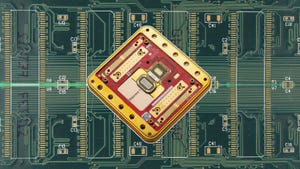5 Ways Data Centers Can Help Prevent Data Breaches5 Ways Data Centers Can Help Prevent Data Breaches
Discover five key ways data centers can mitigate risk and protect against data breaches, ensuring robust security and swift recovery.

Does your data center protect you against data breaches? In some ways, that may seem like a strange question to ask.
Most data breaches don’t happen because of flaws in data centers. Instead, they stem from issues like software vulnerabilities that threat actors exploit to break into systems or attacks launched by malicious insiders who have access to a company’s internal systems.
Still, while data centers aren’t usually the direct causes of a data breach, there are several things that data centers can do to help mitigate the risk of a breach – and contain its impact if it does happen.
To illustrate, here are five key capabilities data centers provide to help protect against data breaches:
1. Implementing Rigorous Physical Security Controls
Sometimes, the easiest way to steal or destroy data is to break into a data center physically, as opposed to hacking software systems. For that reason, data centers should provide strong physical security access protections that mitigate the various types of physical security threats facing data centers.
For example, in addition to controlling who can enter a data center’s exterior door, data center operators should also restrict entry to server rooms to provide an extra layer of physical security.
2. Supporting Air-Gapping Inside Data Centers
Air-gapping is the practice of disconnecting or segmenting workloads from untrusted networks to reduce the risk of network-borne attacks. Air-gapping is a great way to protect resources like data backups, which don't typically require constant network connectivity.
However, air-gapping in data centers can be challenging because most organizations have limited, if any, IT staff physically present in a data center facility. As a result, they rely on network connections to administer workloads remotely.
Data center operators can address this challenge by providing indirect or temporary connectivity solutions for accessing air-gapped workloads. For instance, Equinix Fabric supports a virtual connection feature that can be used for this purpose.
3. Providing High-Performing Network Infrastructure
The better your data center network performs, the easier it is to protect against data breaches. Why? Because high-performing networks – which means networks capable of reliably moving large amounts of data in minimal time – make it easier to implement disaster recovery strategies like automated failover from one data center to another in the event of a ransomware attack.
High-performing networks won't prevent data breaches, but they will help you recover faster. Data center operators can meet this need by supporting network interconnects and providing high-bandwidth infrastructure within their facilities.
4. Providing Managed Backups
In a similar vein, data center operators can help mitigate data breach risks by providing managed backup services – which means backing up their customers' data center workloads as a managed service.
Managed backups (or, for that matter, backups of any time) won't stop data breaches. But like automated failover to a backup environment in a different data center, managed backups make it easier for businesses to restore operations quickly in the event of an attack.
5. Vetting data center technicians
Vetting data center technicians is best practice for mitigating the risk of data breaches caused by malicious insiders. This is true whether you hire your own technicians, or work with an outsourced data center operator to staff a facility.
Most insiders are not threats, of course. But data center operators that have a systematic process in place for protecting against malicious parties among their personnel are in a stronger position to mitigate data breach risks. They can also compete with public cloud providers, who are making staff background checks and citizenship guarantees an increasingly important part of specialized offerings like Azure Government and AWS GovCloud.
Leveraging Data Centers in the Fight Against Data Breaches
Your first steps in defending against data breaches should be investing in controls and processes that protect against the main types of attacks, like software vulnerabilities.
Read more of the latest data center security news headlines
But you can complement those protections by taking advantage of specialized capabilities provided by data center operators. Data centers can't stop data breach attacks, but they can reduce some key types of risks – such as insider threats. They can also enhance your ability to recover quickly in the event of a data breach.
About the Author
You May Also Like









